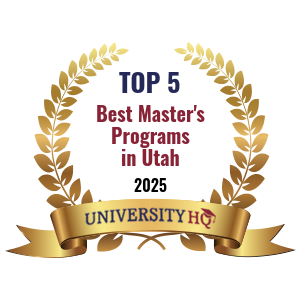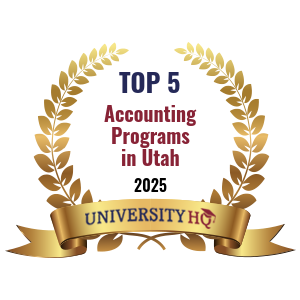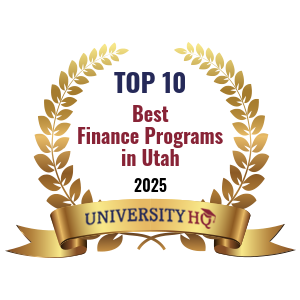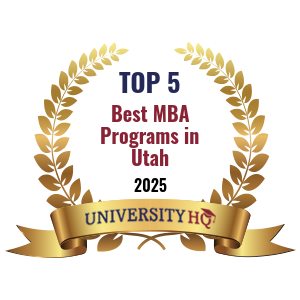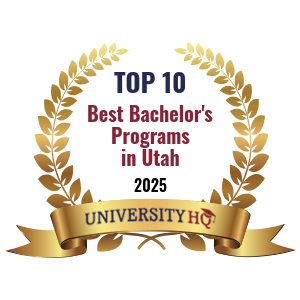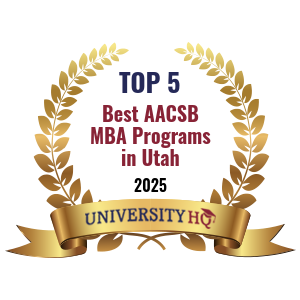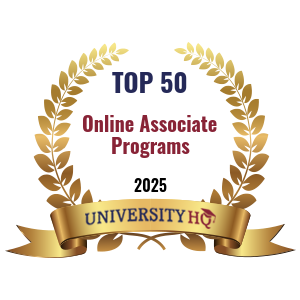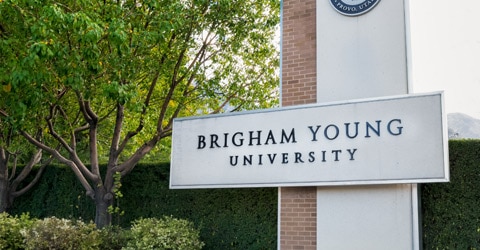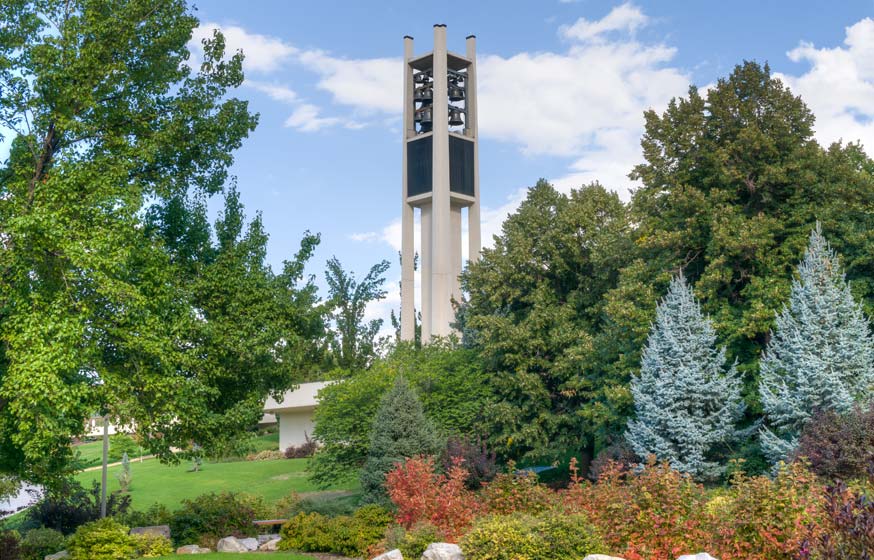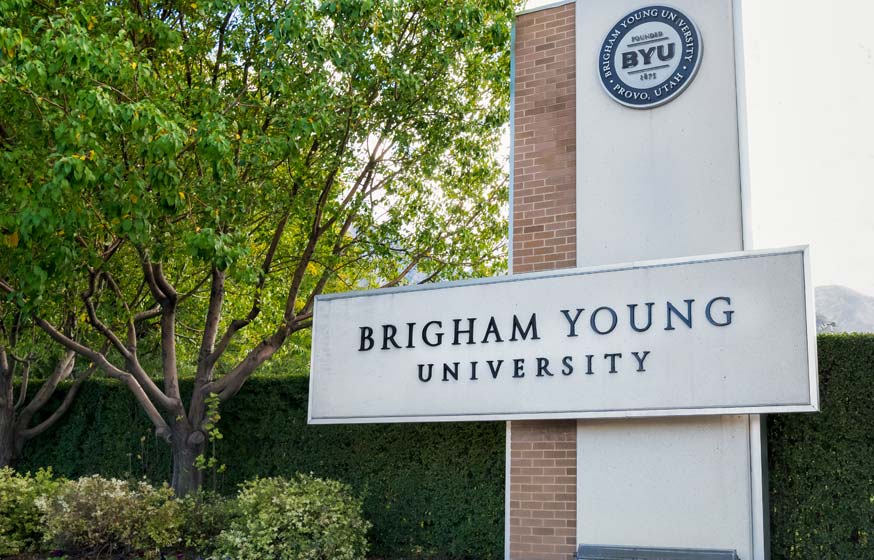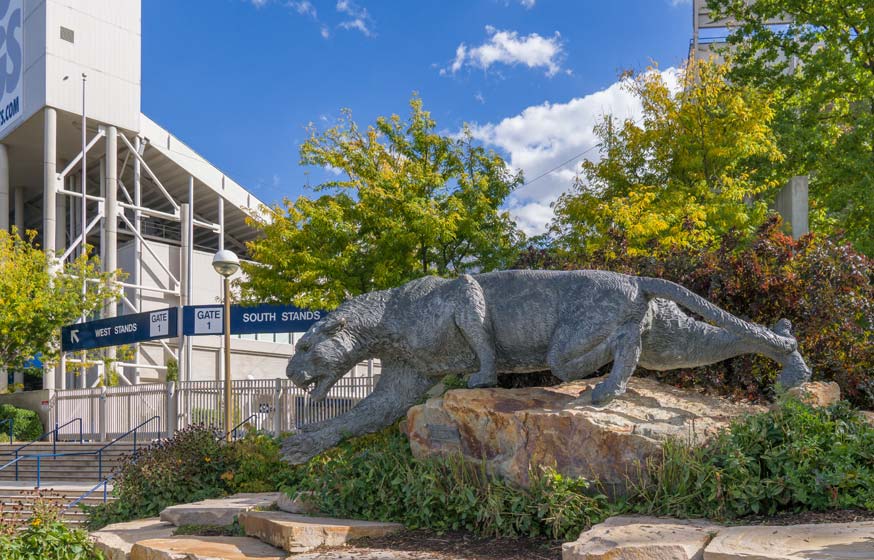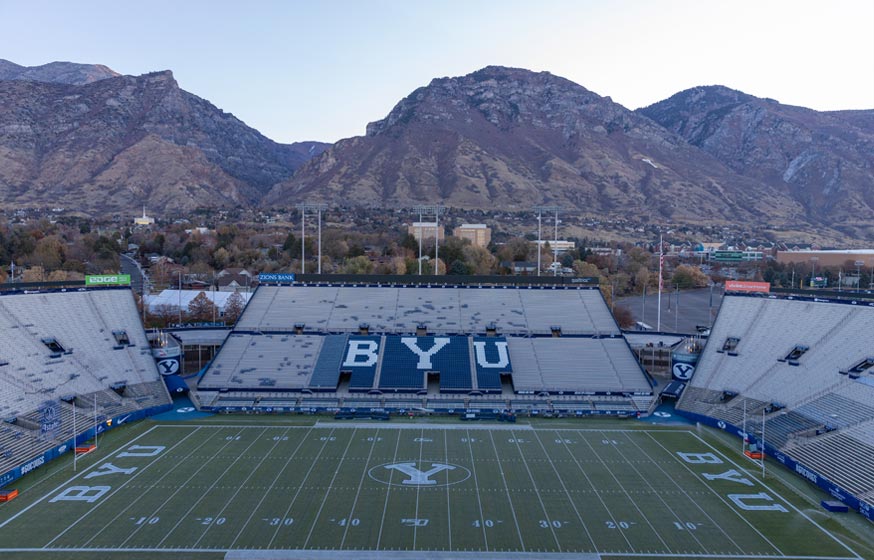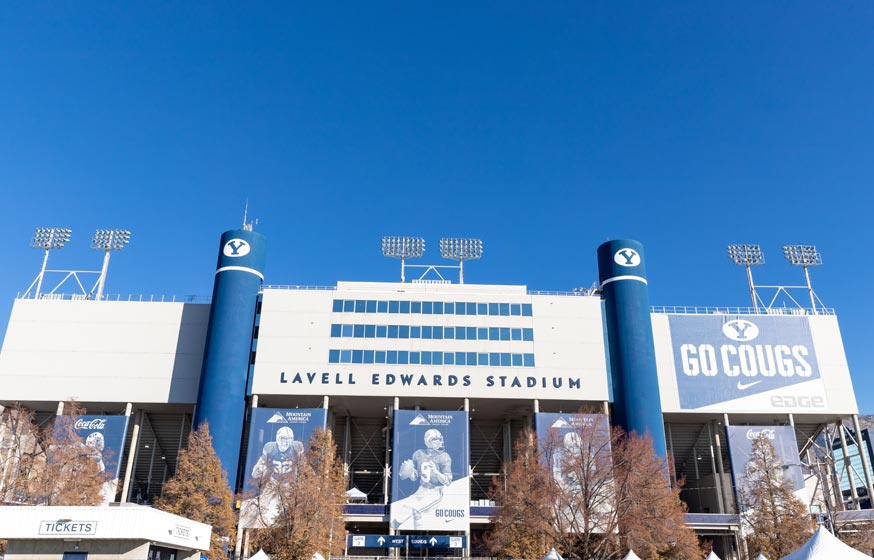University Headquarters (HQ) is an industry-leading, independent educational organization that provides independent college rankings using a proprietary formula to create first class unbiased rankings. The team at University HQ strives to provide accurate and trustworthy rankings that highlights the best programs.
Get Matched With Online Colleges
Brigham Young University, which was founded in Provo, Utah, is a co-educational, private university. The Church of Jesus Christ of Latter-day Saints operates this campus and branch campuses located in Rexburg, Idaho and Laie, Hawaii. It has a complete enrollment of 34,000+ students at the undergraduate, master’s, and doctorate levels.
Search All Programs
Overview of Brigham Young University (BYU)
Aside from the main campus, BYU also owns and operates eight colleges and the David O. McKay School of Education, the David M. Kennedy Center for International Studies, the J. Willard and Alice S. Marriott School of Management, the Reuben Clark Law School, the Ezra Taft Benson Agriculture and Food Institute, and the Center for Family History and Genealogy. BYU is large enough that it offers both master’s degree programs in almost all study areas and more than 50 doctorate degrees programs. Research is a vital part of the university—it operates labs for plasma, atomic, and condensed matter physics.
BYU was founded by Brigham Young, who was the second president of the Mormon church. Before being named Brigham Young University, it was called Brigham Young Academy. Its original mission was to train teachers, with instruction beginning in 1876. In 1903, it attained university status.
General Information
| School Type | Private not-for-profit |
|---|---|
| Campus Setting | City: Midsize |
| Campus Housing | Yes |
| Student Faculty Ratio | 20:1 |
| Graduation Rate | 86% |
| Year Founded | 1875 |
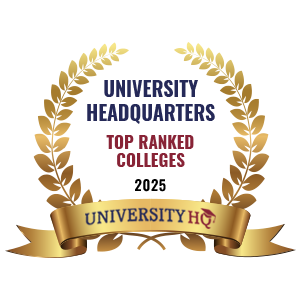
Student Enrollment
Total Students34,499
31,441
3,058
Undergraduate Student
Male 15,720.5
Female 15,720.5
Graduate Student
Male 1,529
Female 1,529
Explore Map
Top Rankings For Brigham Young University
BYU Acceptance Rate and Admissions
APPLICATION10,500
ACCEPTANCE7,035
Acceptance Rate67%
Enrollment 5,698
| Admissions | |
|---|---|
| Application Fee | $35 |
| High School GPA | Required |
| High School Rank | NA |
| High School Transcripts | Required |
| College Prep Courses | Considered But Not Required |
| Recommendations | Required |
| SAT/ACT | Required |
| TOEFL (Test of English as a Foreign Language) | Required |
| Application Deadline | November 1 |
| Common Application Accepted | No |
BYU Tuition Cost & Financial Aid
Even considering that BYU is a private, not-for-profit university, the tuition for a student in 2018-2019 was $5,620. Books and supplies cost the average student $848 while room and board cost $7,628 for the academic year. The total cost for a BYU student was $24,396; with financial aid, this number fell to $13,120.
Sixty-nine percent, or 3,703 students beginning school at BYU, received some form of financial aid. Forty-eight percent, or 2,567 students, received either grants or scholarships totaling $5,056, 45% or 2,396 students received institutional grants or scholarships totaling $4,061; federal loans went to 12% or 632 students, who received an average of $5,073.
| Average net price | 2017-2018 |
|---|---|
| Net Price | $13,120 |
| Average Total Aid | $5,056 |
| Students Receiving Financial Aid | 69% |
| Room & Board | $7,628 |
Sticker Price
- Tuition In-State - $5,620
- Tuition Out-of-State - $5,620
- Books and Supplies - $848
- Room & Board - $7,628
- Other - $4,680
Academics
As a private university, BYU is able to offer more to its students than a public university is able to do. The student-to-faculty ratio is 20 to 1. Of the 34,499 students, 31,441 are undergraduate students. BYU offers bachelor’s degrees, master’s degrees, doctorate degrees for professional practice, doctorate degrees for research and scholarship, and postbaccalaureate certificates.
The main campus is set within a midsize city and offers campus housing to its students. BYU’s retention rate is 88% for full-time students; for part-time students, it is 67%. The school’s graduation rate is 86% overall; the four-year graduation rate is 22% for students who began pursuing their bachelor’s degrees in a recent academic year, down from previous years. The six-year graduation rate for students in recent academic years is 86%. These numbers are solid and it is possible, with BYU being an academically rigorous school, students may not have anticipated the level of studying required and left the school for that reason.
Retention
Rate
4 year
Graduation
Rate
6 year
Graduation
Rate
Student Population Total
Student Population 34,499
31,441
3,058
Most Popular Programs & Majors
(# of Diplomas Awarded by Subject)
| All Business Majors | 906 Total Graduates / 13% |
|---|---|
| Accounting | 193 Graduates |
| Finance, General | 170 Graduates |
| Marketing/Marketing Management, General | 101 Graduates |
| Accounting and Related Services, Other | 69 Graduates |
| Construction Management | 59 Graduates |
| All Biological & Biomedical Majors | 808 Total Graduates / 12% |
| Exercise Physiology | 229 Graduates |
| Neuroscience | 116 Graduates |
| Microbiology, General | 111 Graduates |
| Physiology, General | 81 Graduates |
| Ecology, Evolution, Systematics and Population Biology, Other | 80 Graduates |
| All Social Science Majors | 578 Total Graduates / 8% |
| Economics, General | 189 Graduates |
| Political Science and Government, General | 136 Graduates |
| Sociology | 131 Graduates |
| International Relations and Affairs | 39 Graduates |
| Geography, Other | 32 Graduates |
| Health Professions and Related Programs | 567 Total Graduates / 8% |
| Public Health Education and Promotion | 139 Graduates |
| Registered Nursing/Registered Nurse | 120 Graduates |
| Audiology/Audiologist and Speech-Language Pathology/Pathologist | 102 Graduates |
| Athletic Training/Trainer | 42 Graduates |
| Dietetics/Dietitian | 42 Graduates |
| All Engineering Majors | 524 Total Graduates / 8% |
| Mechanical Engineering | 171 Graduates |
| Chemical Engineering | 116 Graduates |
| Electrical and Electronics Engineering | 77 Graduates |
| Manufacturing Engineering | 66 Graduates |
| Civil Engineering, General | 51 Graduates |
| All Other Diplomas | 51% |
Outcome & Salary
After graduation, BYU alumni may earn an early career salary of $62,000. Mid-career salary may rise to $121,000. Students may expect to have a certain return on investment (ROI) from their time in school. It represents the difference between the university graduate’s earning and the earnings of a high school graduate. The annual ROI is about 11.8%, or the expected percentage they receive each year post-graduation. The 20-year ROI rests at $595,000.
Some of these students may not have chosen to return to school after earning a bachelor’s degree, while others may have earned a master’s degree, and still other students continued in school to earn a doctorate degree. Depending on a student’s degree and career choice, this may have had an impact on their salary and ROI.
| Graduates Salary | |
|---|---|
| College Grads Early Career Salary | $61,700 |
| College Grads Average Salary | $75,000 |
| College Grads Mid Career Salary | $120,600 |
| Return on Investment (ROI) | |
|---|---|
| 10 Year Salary Earnings Potential | $750,000 |
| 20 Year Salary Earnings Potential | $1,956,000 |
| Cost of Education (Net Price) 4 Year | $52,480 |
| 10 Year Projected ROI | $697,520 |
| 20 Year Projected ROI | $1,903,520 |
| No College Education Salary Comparison | |
|---|---|
| National Average Salary | $38,792 |
| 10 Year Projected Income | $387,920 |
| 20 Year Projected Income | $775,840 |
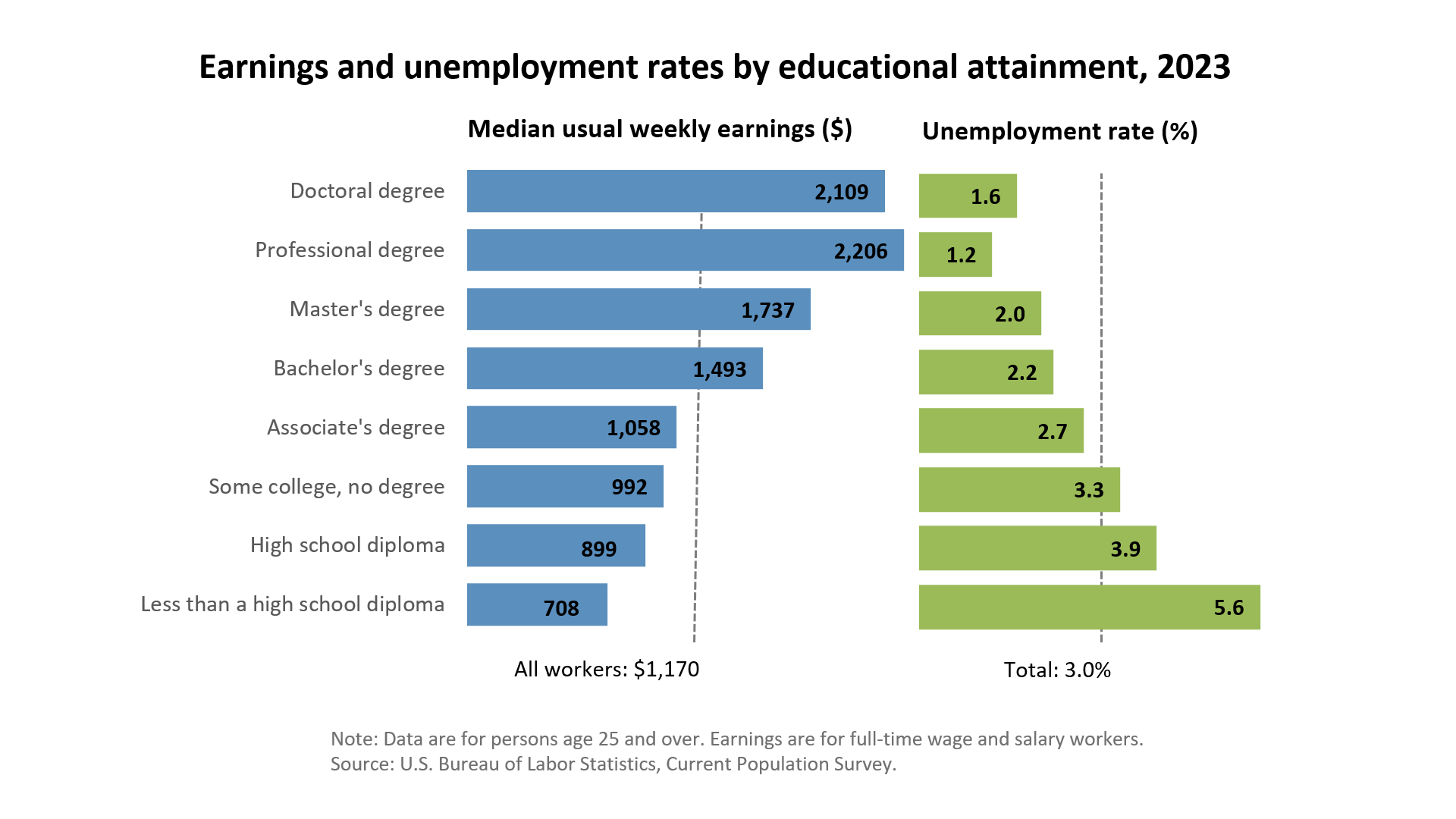
Related Top College Resources

